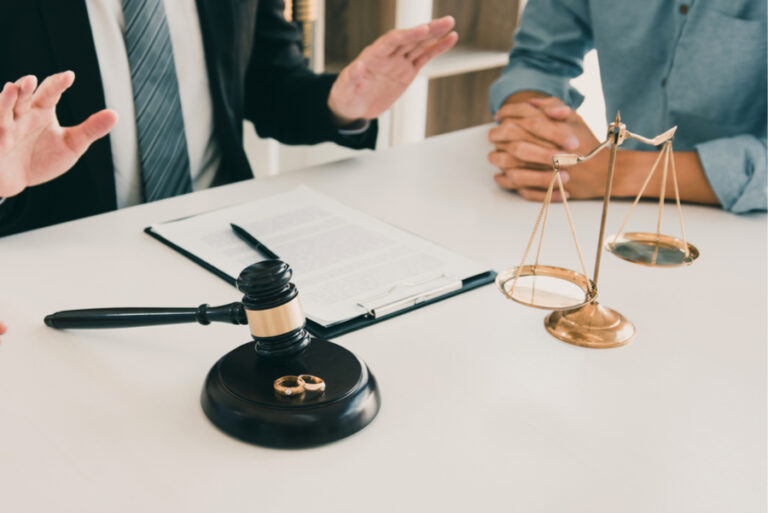How To Choose the Right Personal Injury Lawyer for Your Needs

Table of Contents
- Understanding Personal Injury Law
- Qualities of a Competent Personal Injury Lawyer
- Research and Resources
- Initial Consultation: What to Expect
- Evaluating Experience and Specialization
- Understanding Legal Fees and Contracts
- Real-Life Success Stories
- Conclusion
Understanding Personal Injury Law
Personal injury law is a legal field that addresses cases where an individual endures harm due to another party’s negligence or wrongdoing. It encompasses a variety of incidents, including car accidents, slips and falls, workplace injuries, medical malpractice, and more. These cases require an expert to navigate the complexities involved, particularly when understanding the subtle nuances of state laws. For those in need, a proficient Amarillo TX personal injury lawyer can be quite helpful in evaluating the complexities of your particular circumstance and obtaining the proof required for a strong argument.
Recognizing the scope and application of personal injury law is vital for anyone considering pursuing a legal case in this domain. Understanding applicable legislation, administrative stages, possible compensation, and statutes of limitations—the deadlines for submitting claims is necessary for the process. Personal injury law, which occasionally involves trials or settlements, further highlights the necessity for professional aid. The stakes can include substantial financial compensation for medical expenses, lost wages, and pain and suffering.
Qualities of a Competent Personal Injury Lawyer
When searching for the right lawyer, it’s crucial to focus on qualities that can make a difference in the outcome of your case. Key attributes include extensive legal knowledge, strong ethical principles, and the ability to communicate complex terms easily. These traits ensure the lawyer can advocate effectively while informing you about the case’s progress and developments.
Empathy also plays a significant role in a lawyer’s toolbox. When lawyers understand and relate to your situation, they are more likely to convey your story compellingly in court or during negotiations. A lawyer should inspire confidence with their track record, showcasing past successes in similar cases, indicating their ability to handle your unique circumstances.
Research and Resources
The initial step in finding the right lawyer involves thorough research. Utilize online resources and directories, such as FindLaw, to sift through potential candidates based on location, expertise, and client feedback. These platforms often provide access to lawyer profiles, helping you understand more about their educational background, bar association ratings, and types of cases they typically handle.
Supplement this with independent verification through state bar association websites, ensuring the lawyers under consideration maintain good standing and have no history of disciplinary actions. Reading client testimonials and reviews can also reveal insights into a lawyer’s professionalism, responsiveness, and ability to achieve favorable client outcomes.
Initial Consultation: What to Expect
The consultation is your first real interaction with a potential lawyer and serves as a two-way interview. It allows you to present your case and gauge the lawyer’s initial thoughts on its strengths and weaknesses. During this meeting, lawyers typically provide an overview of your legal options, potential next steps, and possible outcomes based on their experience.
For the consultation to be as beneficial as possible, preparation is essential. Compiling all relevant documentation, like police reports, medical records, and correspondence related to the incident, provides the lawyer with a detailed understanding of your case. Prepare questions regarding the lawyer’s approach to cases, how they communicate, and what you can expect regarding engagement during the legal process. This information will help you assess if they align with your needs and expectations.
Evaluating Experience and Specialization
A lawyer’s experience and specialization in personal injury law are significant factors in your decision-making process. A specialized lawyer who has handled numerous cases in your specific category—vehicular accidents, workplace injuries, or medical malpractice—will typically have refined strategies that lead to successful outcomes. Their familiarity with complex legal procedures can significantly impact the progress and results of your case.
According to a report by Legal News, lawyers with a specialized focus accrue insights and courtroom skills that general practitioners may lack. This expertise facilitates negotiations and litigation and often streamlines the path to favorable settlements or verdicts, underscoring the value of their specialization in achieving client objectives.
Understanding Legal Fees and Contracts
Understanding the financial aspects of hiring a lawyer is another critical area that requires attention. Most personal injury attorneys take cases on a contingency fee basis, meaning they only get paid if you win. The lawyer typically takes a share of the settlement for clients who cannot afford large upfront legal bills, lowering financial risks.
However, it’s essential to understand all aspects of the fee agreement, including potential additional costs that the contingency might not cover. These might include court filing fees, costs for obtaining medical records, or using expert witnesses. Transparency in these agreements helps build trust and ensures both parties have aligned expectations before proceeding with the case.
Real-Life Success Stories
Real-life success stories offer a glimpse into what effective legal representation can achieve. These stories are often anchored in the lawyer’s ability to navigate complexities, communicate compellingly, and commit to their client’s pursuit of justice. They illustrate the importance of choosing a competent lawyer deeply invested in their client’s welfare.
By exploring these testimonials, you can identify key attributes and skills correlating with positive legal outcomes. Such qualities often overlap with experienced legal strategists who keenly understand personal injury law and dedicate themselves to favorable resolutions.
Conclusion
Finding the right personal injury lawyer is a process that involves deliberate research and careful evaluation. By focusing on qualities like experience, communication, and empathy, and preparing yourself for initial consultations, you equip yourself with the tools to make a confident selection. As you pursue this path, remember that a knowledgeable and dedicated lawyer is invaluable in steering your case toward a just outcome and securing the compensation you deserve.





